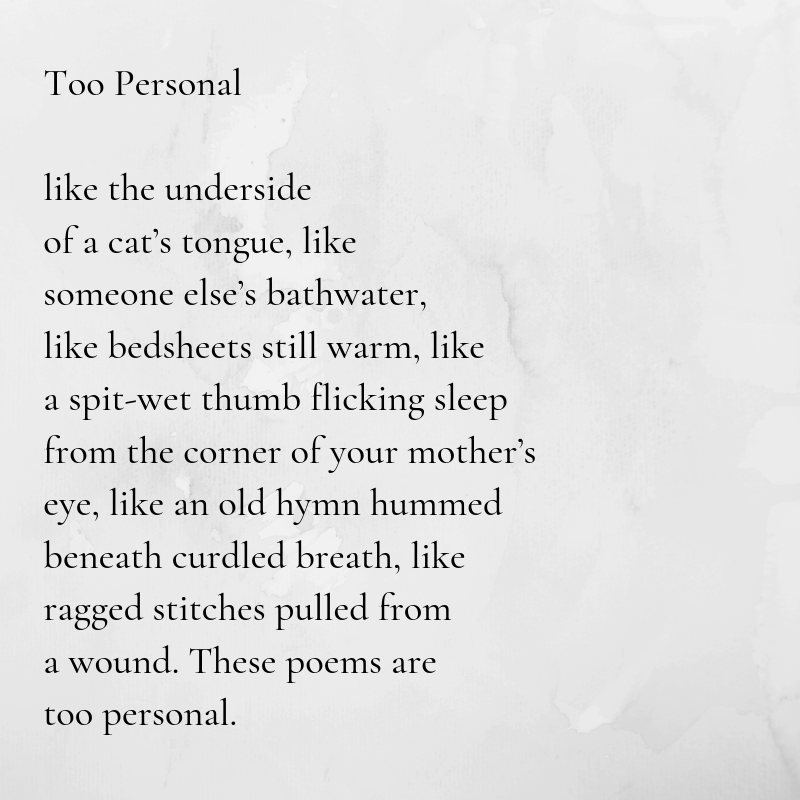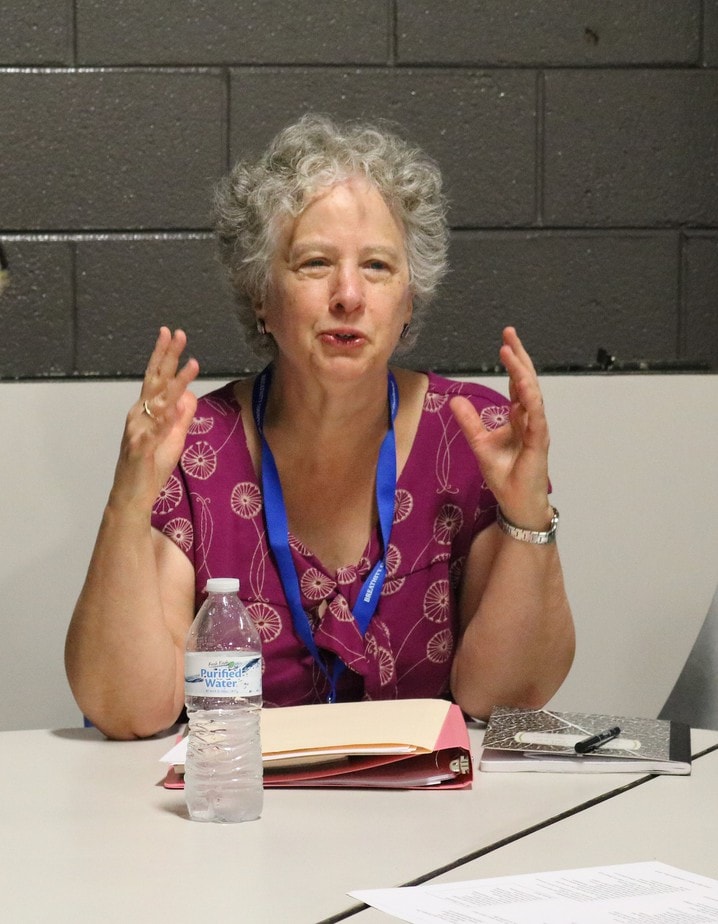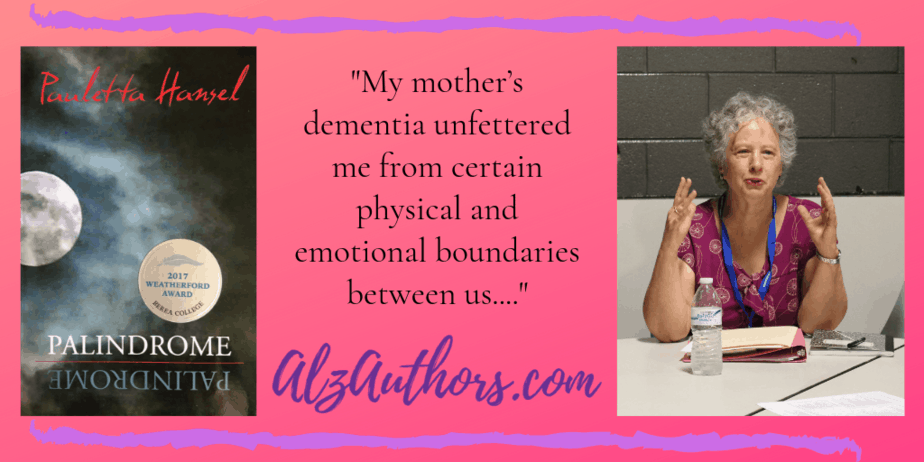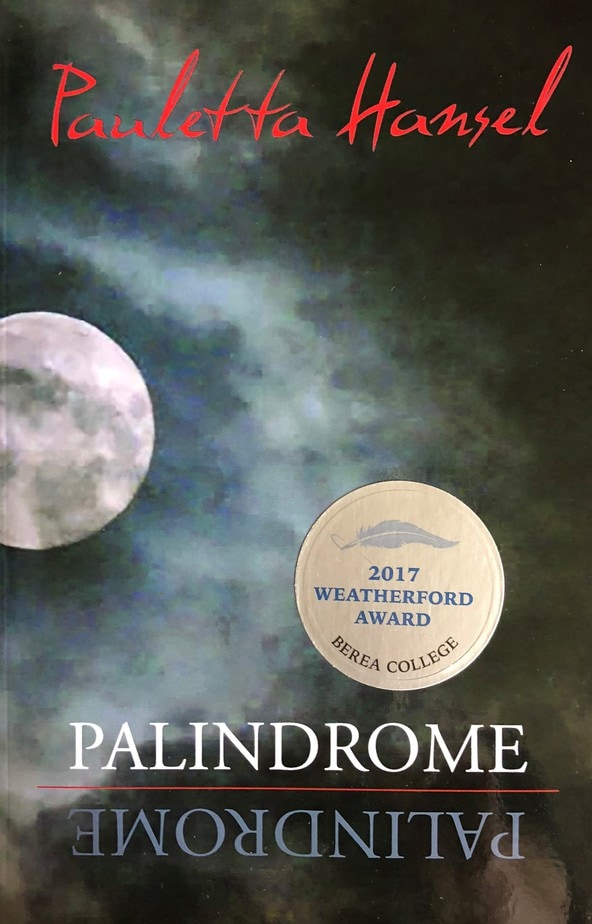
I didn’t set out to write a book about being the caretaking daughter of a mother with dementia. I didn’t set out to be that daughter. But being both writer and daughter, when my mother’s dementia was what was given me, caring and writing is all that I knew to do. I live my life and I write about it, uncovering its layers of meaning first through the act of paying attention, then through the words on the page, and finally through consideration of how the individual poems and essays come together to make something new, something that is from my life, but that is not my life. Something that came through me, but that is not only mine.
This caring for and writing about my mother with dementia required both a new level of intimacy and a necessary distance. The intimacy is, I think, obvious. My mother’s dementia unfettered me from certain physical and emotional boundaries between us and also from concern about what she might think of these poems about her. The distance is perhaps less observable. Let me name it first in metaphor. Though I am a meditation dropout, one concept that has always stayed with me is the awareness of the slight pause between inhaling and exhaling. While breath is one continuous, mostly involuntary movement, there exists a slight gap within that movement through which awareness can enter.
For me, writing is that gap. And by writing, I don’t only mean putting words onto paper, but also the noticing of what is, knowing that words will someday be what I make of it. In Palindrome, the noticing and word-making occurred during smaller and smaller gaps within the present tense of my mother’s spiral into dementia. And with that, a different kind of distance became necessary in order to not let the poems disintegrate into a kind of wail. Though many of the poems are in free verse, the distance of formal poetry, of rhyme and meter, provided some necessary emotional distance to make poems from content in which I might have otherwise have drowned. The intimacy of the subject paired with formality of craft created a balanced container for the work.
 My hope is that Palindrome, a cat’s cradle woven between my mother’s life and my own, can help support others’ holding of what is, and their ability to accept both the gift of intimacy and the grief of letting go. I have used poems from the book in writing workshops for other caregivers. Palindrome has won the prestigious Weatherford Award and Ted Kooser, US Poet Laureate Emeritus, wrote that he knows no other poet’s collection “that so completely and artfully sums up the emotions associated” with dementia. I believe that my mother would be proud.
My hope is that Palindrome, a cat’s cradle woven between my mother’s life and my own, can help support others’ holding of what is, and their ability to accept both the gift of intimacy and the grief of letting go. I have used poems from the book in writing workshops for other caregivers. Palindrome has won the prestigious Weatherford Award and Ted Kooser, US Poet Laureate Emeritus, wrote that he knows no other poet’s collection “that so completely and artfully sums up the emotions associated” with dementia. I believe that my mother would be proud.
Purchase a copy of Palindrome: Amazon
About the Author
Pauletta Hansel, author of Palindrome (Dos Madres Press, 2017), is a poet, essayist and teacher who was Cincinnati’s first Poet Laureate (2016-2018). She can be reached at https://paulettahansel.wordpress.com/ and https://www.facebook.com/pauletta.hansel.1.



